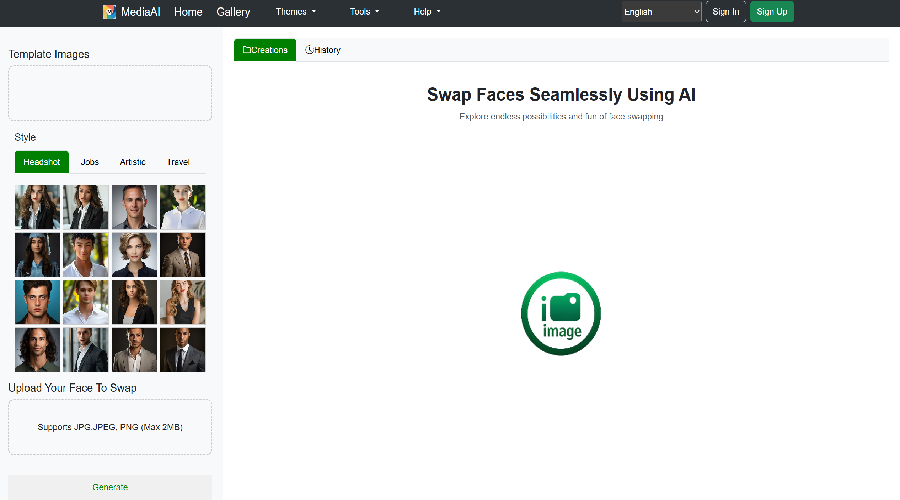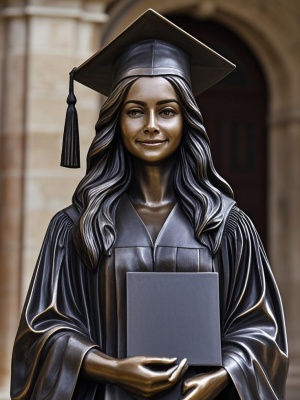The Art of Abstract Face Sculpture: Exploring Form, Emotion, and Innovation
Introduction: The Allure of Abstract Face Sculpture
Abstract face sculpture represents one of the most fascinating intersections between traditional portraiture and modern artistic expression. By distorting, simplifying, or exaggerating facial features, artists create works that challenge our perceptions while evoking deep emotional responses. This art form has gained significant popularity in contemporary galleries and digital spaces alike, with platforms like MediaAI's gallery showcasing stunning examples that blend classical techniques with AI innovation.
The Evolution of Abstract Facial Representation
From Classical to Contemporary
The journey from realistic portraiture to abstract face sculpture mirrors the broader evolution of modern art. Where Renaissance masters sought perfect anatomical accuracy, contemporary artists like Henry Moore and Jean Arp pioneered the abstract facial form, reducing features to essential geometric shapes while maintaining emotional resonance.

Key Characteristics of Abstract Face Sculpture
- Simplification of facial features to basic geometric forms
- Exaggeration or elimination of specific facial elements
- Use of unconventional materials (metal, found objects, digital media)
- Emphasis on emotional expression over physical accuracy

Creating Abstract Face Sculptures: Techniques and Approaches
Traditional Methods
Traditional abstract face sculpture often begins with clay maquettes before transitioning to permanent materials like bronze, stone, or wood. Artists might employ techniques such as:
- Subtractive carving (removing material to reveal form)
- Additive construction (building up layers)
- Assemblage (combining disparate elements)
Digital and AI-Assisted Creation
The rise of digital tools has revolutionized abstract face sculpture. Platforms offering AI image transformation allow artists to experiment with facial abstraction in virtual spaces before physical creation. This hybrid approach combines human creativity with algorithmic suggestions, often yielding unexpected and innovative results.
Problem-Solution Matrix for Abstract Face Sculpture
| Challenge | Solution |
|---|---|
| Maintaining recognizability in abstraction | Focus on key facial landmarks (eyes, mouth contour) |
| Conveying emotion through simplified forms | Exaggerate angles and curves to suggest mood |
| Transitioning from 2D concepts to 3D forms | Use AI modeling tools for preview |
Notable Abstract Face Sculptors and Their Contributions
Several artists have fundamentally shaped the abstract face sculpture movement. According to the Museum of Modern Art's artist archives, key figures include:
- Constantin Brâncuși - pioneered radical simplification
- Alberto Giacometti - explored elongated, expressive faces
- Louise Bourgeois - created emotionally charged abstract heads
The Future of Abstract Face Sculpture
As technology advances, abstract face sculpture continues evolving in exciting directions. The integration of augmented reality allows viewers to interact with virtual sculptures superimposed in real spaces. Meanwhile, AI-assisted creation tools are making this art form more accessible, as demonstrated by platforms like MediaAI that blend traditional aesthetics with cutting-edge technology.

Conclusion: The Enduring Power of Abstract Faces
Abstract face sculpture remains one of the most compelling ways to explore human identity and emotion through art. By stripping away literal representation, these works speak to universal human experiences while challenging our visual perceptions. Whether created through traditional sculpting methods or innovative digital tools, abstract facial art continues to push boundaries and inspire new generations of artists and art lovers alike.